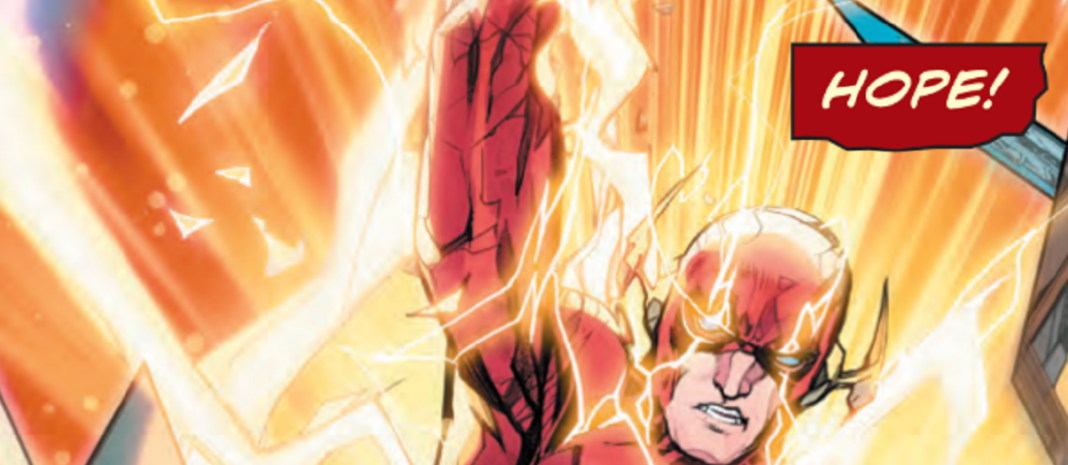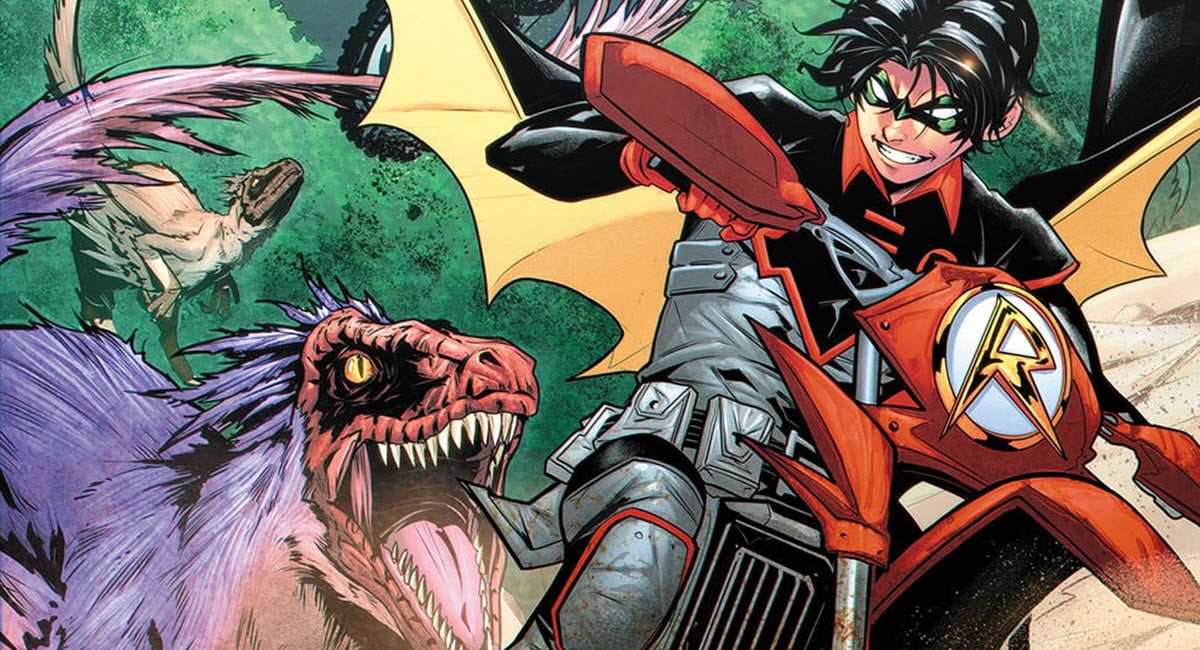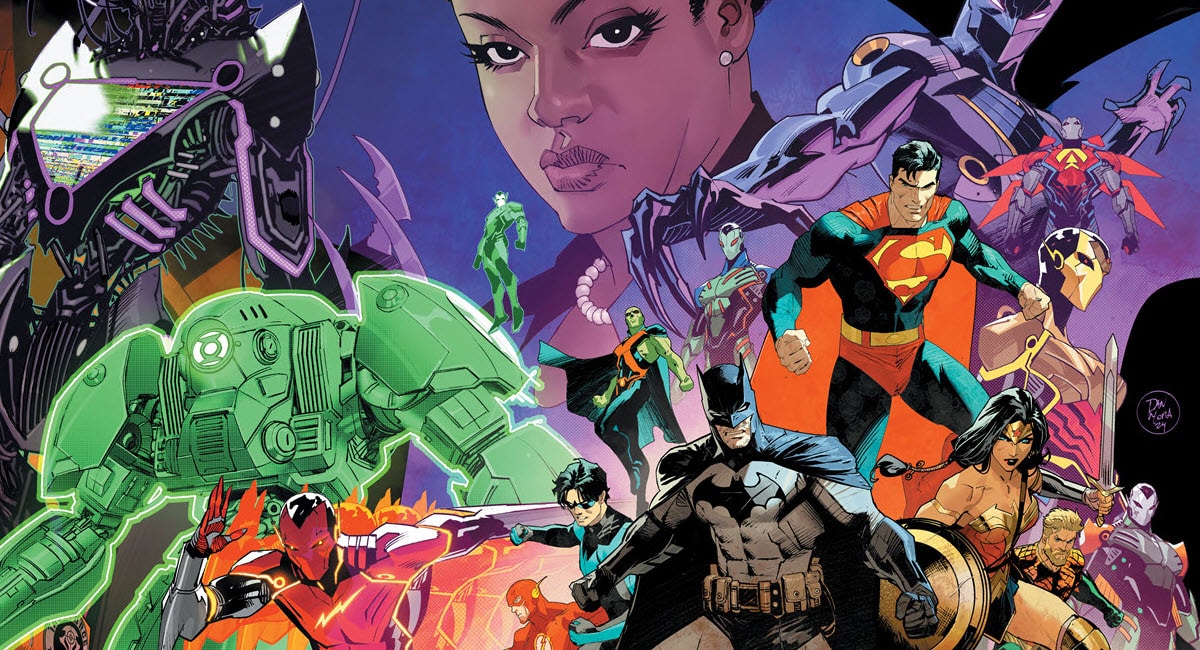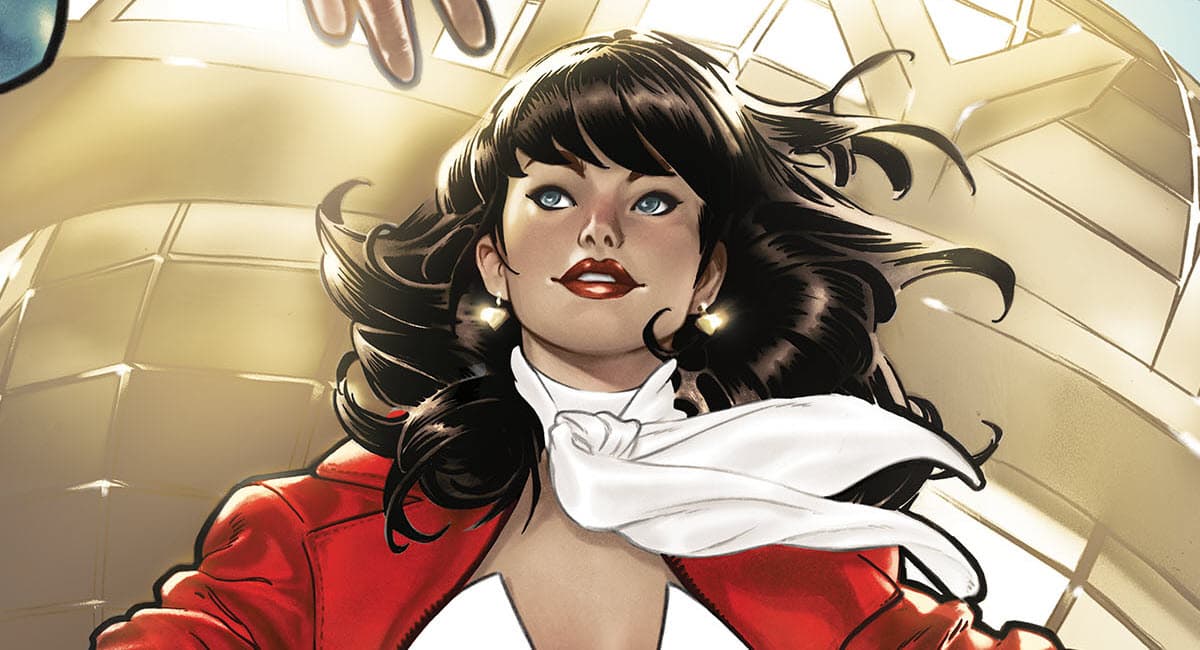Joshua Williamson has been a busy man. Not even mentioning his other writing duties at DC Comics, he has been cranking out Flash comics for years now. A hefty 75 issues in, his story is currently in an excellent Year One arc.
Williamson took some time between panels at San Diego Comic-Con to talk with The Beat about his epic run and just how much he thinks about Barry Allen.
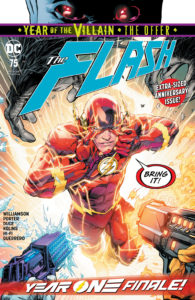
Joshua Williamson: Issue #75 comes out next week [July 24]. I have written 85 issues total. I’ve written a lot of Flash comics, yeah. And I’m not done. It’s crazy; every time I start to feel even for a moment like I’m winding down, I’m like no, no. I can feel it — there’s either Barry or certain villains — there’s a lot of bits and pieces of the Flash mythology that I want to touch on.
One of my things is that I don’t want to leave the book. I don’t want to leave the book ever. I want to make sure I get the touch every little thing I can possibly do. There are characters that are in the Flash mythology I want to make sure I get to write. I have like a bucket list on the book. There was a moment around… I think when I was writing an issue in the early 20s, and there was a brief conversation about if I was going to leave around like #43 or not. And I did the math in my head and I was like, “Nope, not ready.” Not even a little bit. I had so many more stories to tell. And that’s how I still feel about it now, that I’ve written 85. I have so much stuff I want to do. So I’m gonna be on it for a bit.
Hlad: With Tom King leaving Batman, I think you’re the last original rebirth writer. Right?
Williamson: Yeah. That’s true. I believe so!
Hlad: Did you think that you’d be the last man standing or is this a surprise to you?
Williamson: I knew I would probably be matching Tom. I thought Tom would have stayed all the way through. But no. And you know really when I pitched the book, my initial pitch was only for 12 issues. It was one of those things where I was like, ‘This is a story I have to tell, but I have all kinds of ideas so I’ll see what happens.’ So the fact that I got past 12e has been surprising. I’m like, ‘Alright, we did it, we’re doing it! Let’s keep going.’ But I mean, now I feel like I have a lot of ideas for it. You know I have a lot of things I want to do and so I do feel like I’ll be the last man standing when it comes Rebirth. But I did not expect it in the beginning, no.
Hlad: So you’ve never had the feeling that you’re starting to run out of ideas?
Williamson: No, and I’ve seeded a lot of little subplots, a lot of D-plots, throughout the book. There’s a lot. In #75 there’s a moment where Barry basically rebuilds the Flash Museum, and then he’s like I have all these challenges coming at me, and there’s six panels. Each panel represents another challenge out there in the world and none of them are like “new” new — they’re all things we’ve set up. They’re all things we’ve been building, and I think that represents the idea that if you’ve been paying attention to the book from issue #1, there’s questions we haven’t answered throughout. And by the time you get to #75, I’m literally telling you these are the six challenges coming his way. Actually seven when you count Cold. Here are the seven challenges that are still out there in the world that are coming his way. That should show you I do have a lot more to go and it’s all stuff we’ve been building with.
Hlad: Barry Allen is unique in that he was off the board for so long. His story wrapped in the mid-eighties and he didn’t come back until all the way in 2008. Buccellato and Venditti each wrote around 20-30 issues, but you’ve written more Barry Allen than anyone has in a long, long time.
Williamson: I do have the longest run in modern comics. Basically post-Crisis I’ve written more Flash issues than almost anyone. Geoff (Johns) and Mark (Waid) are a little ahead of me, but broken up. But they both wrote Wally, so yeah, nobody with Barry.
Hlad: Who knows more about Barry Allen than you?
Williamson: I don’t think anybody at this point. Maybe Geoff. Well it’s funny, Geoff and Mark wrote Wally, but they both love Barry so they know a lot about him too, you know. I mean listen, if I sat down Mark Waid and we had a contest, I know Mark would win. Literally you can show Mark Waid the cover of a comic, like a Superman comic or a Flash comic, you can cover the number and he can tell it to you every time. Every time. And Cary Bates wrote that book for like 10 years so I’ll never be able to beat Cary Bates.
Hlad: Is there something specific about the character that makes you want to stick around?
Williamson: I think about Barry Allen every day. Yeah, every day and I have a lot of stories to tell with him. It’s interesting coming onto a character that so many people know. But not only know, they all know him well. They all think they know who he is. So when I got the job everyone was telling me this is who Barry Allen is, this is who Barry Allen is. It made me really think a lot about, if I was Barry and everyone’s telling me constantly who I am, how weird that would be. And also putting you on a pedestal.
Could you imagine if someone came to you and was like, “Listen, man, you represent hope and optimism in the universe. Good luck with that.” How intimidating is that, right? You’re just this nerdy dude, you’re this nerdy science guy. And yeah, you’re hopeful. You try to be an optimistic person. But no, you are the SPIRIT of those things! You know what I mean? Like people really come at you. It’s a lot to live up to. Here’s the thing about Barry: Barry wants to live up to it and I think that’s the difference. Yeah, he sees the pedestal. He sees it as something ahead of him, but he wants to be that person.
Hlad: You’ve been doing some great work with Iris, too. How is what you’re doing with Iris different than what Brian Michael Bendis and Greg Rucka are doing with Lois Lane?
Williamson: I think about that a lot. That’s one of the hardest parts of writing Iris and Barry. I think that Iris represents truth. Like, she wants to make sure everyone’s stories are told. She doesn’t want to ever be the story. Ever. I think there’s a part of Lois — and Rucka may come in and tell me I’m wrong — I think that Lois sometimes also kind of wants to be the story a little bit. Iris doesn’t want that. I think she really genuinely just wants to make sure that other people’s stories are told. That’s part of the difference to me. Iris.
You know, one of my favorite Flash stories is this book that’s called The Life Story of the Flash. It is written in character as if Iris wrote the book. So if you read that, you get this crazy insight into Iris. And that is the Iris that I write, it’s the Iris from that story. You get to see her point of view on herself, her story, her character. You have a character who’s always searching for a home and can never find one. She’s in a conflict of slow and fast. She doesn’t want to ever slow down but she doesn’t want to always go too fast. That’s Barry, you know? And I think just sitting down and meeting someone like Barry Allen; he grounds her and she grounds him too. So I’m getting to play with that. I really like writing iris. Her point of view on Barry is one of my favorite parts of the book.
Hlad: I feel like she has more well-rounded personality than we’ve seen before. A stronger personality, maybe.
Williamson: I hear her voice, I hear her talking. And it’s really silly, but I gave her weird little things that no one notices. But if you pay attention to the book, I made Iris a horror movie fan. So there’s this weird thing where every once in a while she’ll talk about horror movies throughout the book. Her having her own nerdiness, that’s the thing. Because Barry is a nerdy person. She’s nerdy too, but she hides it. So I kind of play that into her character every once in a while. It’s this little thing, but to me it helps me with the voice of who she is, and helps me write her. Having little things like that, that not everyone knows about her background but that I know, definitely helps me shape her.
Hlad: The speed force…how would you describe it to someone who’s completely unfamiliar with these stories or comics? I mean, what is it?
Williamson: Oh my God. That’s tough. All right. So the speed force is an energy that is around the multiverse and keeps the multiverse moving. So it’s this thing that’s all about forward motion. Time, space, light. Everything in the multiverse is constantly spinning, constantly evolving, constantly moving. And the force that pushes it is the speed force. And so Barry taps into that force, the actual thing that keeps the multiverse running as an engine. That’s the speed force.
Hlad: Does it represent something? Is it a metaphor for something in particular?
Williamson: I think it’s a metaphor for change. Moving forward. For not staying still. For action. You know, for doing it. I mean you could argue it’s doing the right thing… but I think just acting. And trying to continue to make life move forward, that’s what it’s for.
Hlad: So if you ever do decide to leave The Flash, what parts of your story do you hope the next writer will pick up and run with?
Williamson: I hope whoever writes The Flash after me does something completely different than what I’m doing and doesn’t follow anything I’m doing. Ignore it all. I want them to come in swinging, I want them to come in and do something completely different than what I’m doing. I think that would be my biggest goal. Don’t try to follow in my footsteps in any way, shape, or form. Really come in and take it and make it yours. That’s what I would tell anybody.
The Flash #75 hits shelves July 24, 2019.


